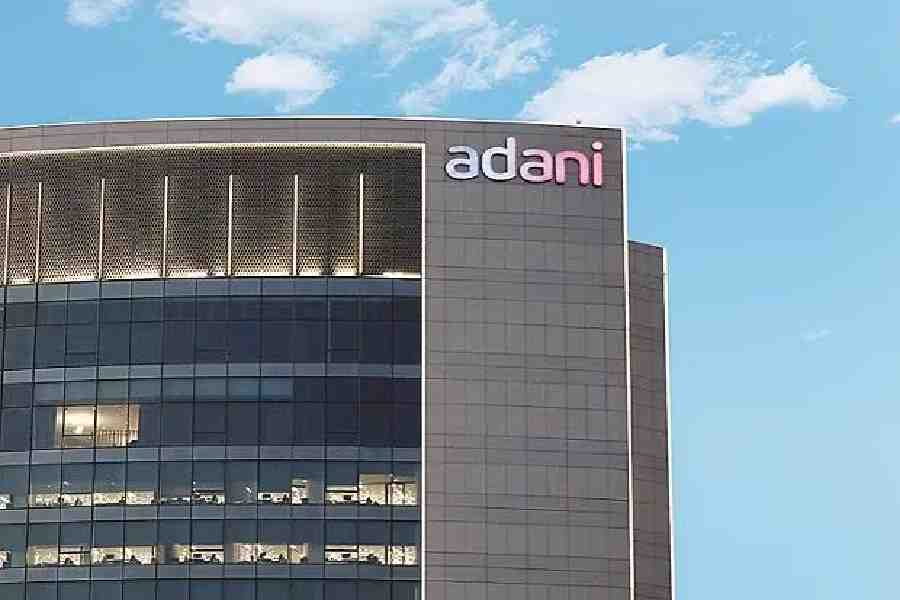The Adani Group may be looking at taking over a Greek port and turning it into a key gateway for Indian exports to Europe.
Reporting on Prime Minister Narendra Modi’s whistlestop one-day visit last week, a Greek news portal, the English-language Greek City Times, and other local media said among the subjects discussed in official talks was the possibility of Adani taking an interest in at least one port – or maybe more.
The two ports mentioned were Kavala in northern Greece and Volos, which lies 330km from Athens. The portal also suggested Adani may be interested in a third port, Alexandroupoli.
Modi travelled to Greece after his four-day visit to South Africa for the BRICS summit. The visit to Greece was the first by an Indian prime minister in 40 years. The last Indian prime minister to visit Greece was Indira Gandhi in the early 1980s.
Modi emphasised during his Greek visit last Friday that he considers Greece to be an essential economic, transport and strategic gateway of India to the EU and talked about "great opportunities" on both sides.
The English-language Greek City Times, quoting unnamed sources, said during talks between Modi and Greek Prime Minister Kyriakos Mitsotakis the Indian leader “expressed the country's interest in acquiring ports in Greece”
There also has been talk in local Greek media that India may also be exploring the possibility of using Greece’s Port of Piraeus near Athens for its European exports. But the rub there is that the facility is Chinese-controlled. China’s COSCO Shipping is majority-owner of the Piraeus Port with a 67-per-cent shareholding.
China has turned Piraeus into the largest port in the region. Xi Jinping visited the port in 2019 and described it as an, “Important hub for China’s fast land-sea link with Europe, and for connectivity between Asia and Europe.”
Kavala in northern Greece is the principal port in the eastern Macedonia region and serves parts of the Balkans. It is also a take-off point for ferries that operate to nearby islands. It would probably need to be expanded considerably for it to serve as a gateway into Europe for Indian consignments. If India does pick up one or more ports, Greek City Times said that, “Greece would officially become India’s central transit hub to Europe.”
The two leaders also looked at increasing tourism from India. In addition, they also looked at the possibility of having an "interstate agreement” to bring in skilled and unskilled personnel from India to tackle Greece’s labour shortages.
Greece is a member of the European Union (EU), so any agreements on labour and personnel would have to fit the wider organisation’s rules on personnel working in the country. The Greek City Times said Modi pointed to India’s huge middle class and also the rising number of billionaires and other such wealthy individuals. The two sides have agreed to upgrade ties to what they described as a “Strategic Partnership” and also double two-way trade by 2030. Two-way trade is currently at $2 billion.
Modi was accompanied by a sizeable business delegation including Sanjiv Puri, chairman and managing director, ITC, Srinivas Bommidala, group director, GMR Group, Samit Mehta, MD and CEO, Emcure Pharmaceuticals, Binish Chudgar, vice chairman, Intas Pharmaceuticals, Arun Garodia, chairman, EEPC, and Vikram Shroff, director, UPL.
Greek City Times said the businessmen saw many areas in which they could invest including high technology. Besides that, they saw the potential of tourism, particularly hotels and marinas. Also, they thought there were strong possibilities in heavy industry and transport. The businessmen held a meeting with the Hellenic-Indian Chamber of Commerce and Industry and the portal said there’s a possibility the Greek prime minister will visit India early in the new year.
Over the last decade, India has boosted relations with Greece as its interests expand from the Indian Ocean to the Eastern Mediterranean. The emerging “commercial corridor between India and Greece could radically reconfigure trade patterns between the Indian Ocean region, the Middle East, and Europe,” said Professor Michael Tanchum, who’s an international relations professor at Spain’s University of Navarra.
“For India, this new connectivity constitutes a strategic paradigm shift of enormous geopolitical consequence that could reshape its role in the Eurasian economy order,” adds Tanchum.











